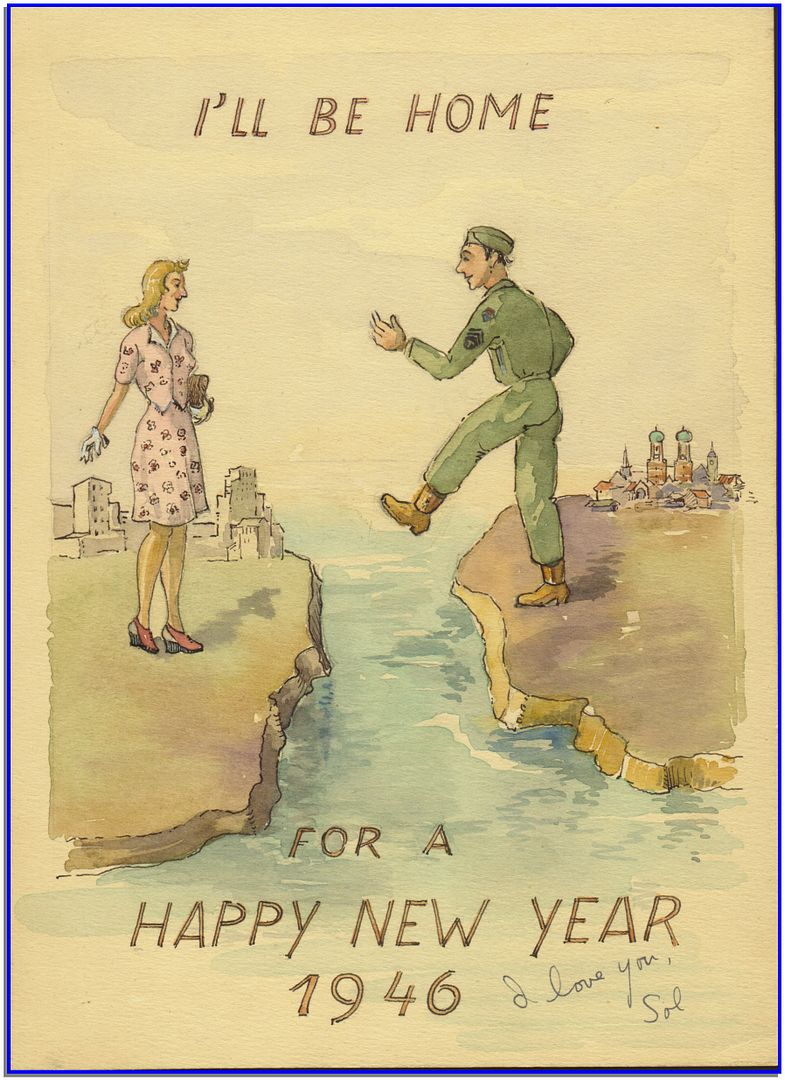June 6,1944
Moderators: carlson1, Charles L. Cotton
June 6,1944
June 6 2014, Today marks the 70th anniversary of "Operation Overlord" where Allied forces began the long, hard fought liberation of Europe from the tyranny of Adolf Hitler and his Nazi hordes. I ask all to pause a moment today to thank Heaven for those brave and selfless heroes and, if you know any veteran of the Second World War thank them for their sacrifices. 

"To disarm the people is the best and most effectual way to enslave them."
George Mason
Texas and Louisiana CHL Instructor, NRA Pistol, Rifle, Shotgun, Personal Protection and Refuse To Be A Victim Instructor
George Mason
Texas and Louisiana CHL Instructor, NRA Pistol, Rifle, Shotgun, Personal Protection and Refuse To Be A Victim Instructor
-
mamabearCali
- Senior Member
- Posts: 2214
- Joined: Mon Feb 07, 2011 4:14 pm
- Location: Chesterfield, VA
Re: June 6,1944
All gave some. Some gave all. We owe a debt of gratitude to them and we owe it to the to not let this great nation defend into the abyss that has opened up at our feet.
SAHM to four precious children. Wife to a loving husband.
"The women of this country learned long ago those without swords can still die upon them!" Eowyn in LOTR Two Towers
"The women of this country learned long ago those without swords can still die upon them!" Eowyn in LOTR Two Towers
- jimlongley
- Senior Member
- Posts: 6134
- Joined: Wed Jan 12, 2005 1:31 pm
- Location: Allen, TX
Re: June 6,1944
+1 & +1WildBill wrote:jimlongley wrote:Amen!

KAHR PM40/Hoffner IWB and S&W Mod 60/ Galco IWB
NRA Endowment Member, TSRA Life Member,100 Club Life Member,TFC Member
My Faith, My Gun and My Constitution: I cling to all three!
NRA Endowment Member, TSRA Life Member,100 Club Life Member,TFC Member
My Faith, My Gun and My Constitution: I cling to all three!
Re: June 6,1944
My Grandfather was at Normandy! He received a Purple Heart for his service.
Guns are like parachutes, if your ever in a situation that you need one and you dont have one, you'll probably never need one again.
-
Cjwglock19
- Senior Member
- Posts: 233
- Joined: Fri Jul 27, 2012 9:58 am
- Location: Central texas
Re: June 6,1944
If you ever think of what they knew they had to endure to be successful...you know those dudes had some stones!!
"You can say 'stop' or 'alto' or use any other word you think will work but I've found that a large bore muzzle pointed at someone's head is pretty much the universal language."
- Clint Smith
- Clint Smith
Re: June 6,1944
AndyC, thanks for your unique perspective.AndyC wrote:You know, each year on the anniversary of the D-Day landings I'm impressed how many people appreciate the sacrifice that troops made.
We have images and mental movies playing of GIs storming the beaches, taking pillboxes, etc - much like the opening scenes of "Saving Private Ryan" - and we revel in their bravery. Now, take a moment and imagine what it meant to the local people - that's a bit harder, but perhaps I can help.
NRA Endowment Member
Re: June 6,1944
My father served in the US Army in France and Germany during WWII.
I don't know much about his war experiences.
I have some old photographs of him in Germany which I will try to find.
I ran across this card that he sent to my [future] mother in 1946.

I don't know much about his war experiences.
I have some old photographs of him in Germany which I will try to find.
I ran across this card that he sent to my [future] mother in 1946.

NRA Endowment Member
- The Annoyed Man
- Senior Member
- Posts: 26890
- Joined: Wed Jan 16, 2008 12:59 pm
- Location: North Richland Hills, Texas
- Contact:
Re: June 6,1944
Interactive then/now photographs from D-Day:
http://www.theguardian.com/artanddesign ... nteractive
http://www.theguardian.com/artanddesign ... nteractive
“Hard times create strong men. Strong men create good times. Good times create weak men. And, weak men create hard times.”
― G. Michael Hopf, "Those Who Remain"
#TINVOWOOT
― G. Michael Hopf, "Those Who Remain"
#TINVOWOOT
- The Annoyed Man
- Senior Member
- Posts: 26890
- Joined: Wed Jan 16, 2008 12:59 pm
- Location: North Richland Hills, Texas
- Contact:
Re: June 6,1944
I have been to Oradour-sur-Glane. It is seared into my memory. I have a lot of pictures I took there. If you're a FaceBook friend of mine, you can see them here: https://www.facebook.com/annoyedman/med ... 189&type=3AndyC wrote:Google the story of Oradour-sur-Glane and read about the kind of horrors your forefathers helped to liberate Europeans from; you might even visit there some day, in which case your (perhaps) casual appreciation will turn to a very, very deep reverence indeed that such men lived.
[ Image ]
The massacre at Oradour-sur-Glane occurred on June 10, 1944, just 4 days after the D-Day landings. In support of the landings, the French resistance went crazy all over France as part of an attempt to nail down German troops in those areas of resistance, so that those troops would not be relocated to Normandy and thrown into the fight against the Allies. In the part of France where Oradour-sur-Glane is located, there are 3 or 4 towns by the name of "Oradour", all of which are not that far away from the others. They are differentiated by the names of the rivers on which they are located. Thus, "Oradour-sur-Glane" is "Oradour on the Glane River". I've actually been in one of the other Oradours also. Anyway, this part of France had an extremely active and quite heroic Resistance movement, known as the "Maquis", and they participated very actively in this behind-the-lines disruption of the Nazi war machine.
So what happened was that, on or just after D-Day, a Maquillard cell in the region from nearby Oradours-sur-Vayres had blown up some railroad tracks, halting a train with a bunch of German officers on board. The Maquis executed the Germans. In retaliation, the German SS attacked Oradour-sur-Glane, mistaking it for Oradour-sur-Vayres. The Nazis murdered 647 men, women and children. They separated the men and older boys from the women and children. The men and boys were herded into small groups against stone walls where they were machine gunned. The women and small children were herded into the local church, where they were machine gunned in the legs so they could not escape, and then the church was burned down around them. All but one of the women and children inside perished. One teenaged girl escaped by jumping out a window, breaking her leg in the fall, but she managed to drag herself to safety and hid until the Germans left. One 12 year old boy who was part of a group of males that was machine gunned in the garden behind a store was actually unhurt and was buried under the bodies of the men falling around him. Later, after night fell, he crawled out from under those bodies and left the store, through the front door, where he ran smack into 2 SS soldiers who were standing guard. One of them looked at him and said, "RUN....go NOW". He did. The Germans threw 12 or so bodies down the village well. The well is still there. A few meters away from the well is the town's cemetery where the victims of the atrocity are all buried. I couldn't go in there. By the time I got to the cemetery, I was completely undone.
As a side-note, we actually visited Oradour-sur-Vayres by accident the same day, while we were looking for Oradour-sur-Glane. The mayor himself greeted us in the town square and invited us into the city hall to view some momentos from the war. While we were there, he told us about how the townsfolk found and buried the crew of a Canadian Lancaster bomber that had crashed earilier in the war. The crew were all killed, and the local residents knew that the SS would exploit their bodies for propaganda purposes, or to desecrate them. So they gathered up the crew's remains and buried them under pseudonyms in the local cemetery just off the town square. But they hid the crew's identity cards from the Germans, and they kept track of who was actually buried in each pseudonymous grave. After their area was liberated, they went back and put the crewmembers' proper names on each gravestone. The mayor was very proud of this story.
Andy's right. We make fun of the French for being "surrender monkeys" etc., etc., but not one single member of this forum, myself included, has ever had to spend 5 or 6 years of their lives living under the bootheel of Nazi oppression. My (French) mother did. To this day, despite her relative wealth, she can never have enough money to feel secure. She remembers eating cats and rats to survive.
“Hard times create strong men. Strong men create good times. Good times create weak men. And, weak men create hard times.”
― G. Michael Hopf, "Those Who Remain"
#TINVOWOOT
― G. Michael Hopf, "Those Who Remain"
#TINVOWOOT
Re: June 6,1944
This year is the first year my daughter has been interested in watching the Band of Brothers series. We watched parts 1 & 2 last night, just finished part 3, and are starting part 4 now.
I am not and have never been a LEO. My avatar is in honor of my friend, Dallas Police Sargent Michael Smith, who was murdered along with four other officers in Dallas on 7.7.2016.
NRA Patriot-Endowment Lifetime Member---------------------------------------------Si vis pacem, para bellum.................................................Patriot Guard Rider
NRA Patriot-Endowment Lifetime Member---------------------------------------------Si vis pacem, para bellum.................................................Patriot Guard Rider
